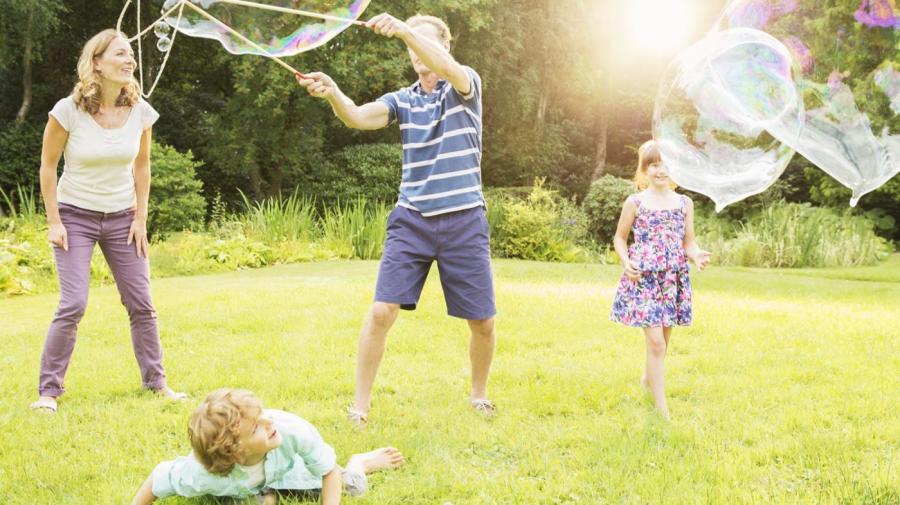What Is the Role of Family in Society?

The role of a family in a society is essentially to teach children skills, morals and values that will help them become better people and will, in turn, allow them to be productive in society.
While children learn skills, values and ethics from other places later on in life, such as school, work and friends, the family is the first place where they gain a sense of morality and what is considered right and wrong. Children are exposed to the influence of their parents, and siblings if they have them, as well as their grandparents and other extended family members. Through frequent interactions with family members, children learn to emulate their parents’ beliefs of what constitutes commendable, acceptable and deplorable behavior in the larger society. The values that families instill in children are shaped in several ways, which includes the parents’ personal upbringing, their geographic location and religion.
Types of Families Around the world, family structures and family values are largely shaped by the broader community, and even by the state, region or country in which a family is located. The type of family in which a child is raised also shapes his or her values, which in turn influences how that child interacts in society and what his or her concept of gender roles are. A matrilocal family, for instance, is a nuclear family headed by a female without the presence or involvement of a male father. Children raised in this environment may have a more favorable perception of the role of women as contributing and equal members in society. Children raised in traditional patriarchal settings, in contrast, may develop beliefs that men are superior and natural providers for their families. These environments, in turn, shape how children respond to the role of men and women in the workforce and in domestic settings.
Biological Roles of Families In societies, family units have both a biological and sociological function. Biologically, reproduction that produces families makes them contribute directly to the growth and future continuity of their surrounding societies. Over time, a person’s role and function in a family changes to accommodate those obligations to continue evolving the surrounding society. A newborn child, for example, starts out in his or her family as a being who is attended to and cared for by other, older family members. As the child ages, he or she begins taking on responsibilities like chores and tasks.
Children are also taught appropriate behaviors, social norms and etiquette as they begin to interact with the surrounding society. When children grow up, they eventually follow in their parents’ and grandparents’ footsteps of being caregivers and providers. They eventually assume their parents’ role of having children of their own, and they in turn pass along those same traits, values and moral ethics that their parents bestowed on them. Children also develop some of their own values and ethics based on personal life influences such as work, religion and friends.
Religion Another factor that influences the family’s role in society is religion. Catholic families, for example, raise their children to accept beliefs historically associated with the Catholic religion. Religious teachings are part of the child’s life growing up, and he or she in turn applies those values to interactions with community members, work associates and other members of society.





